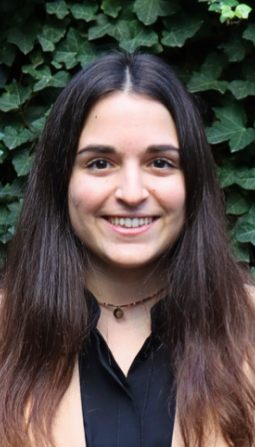The City of Marseille is looking for a consortium to prevent and reduce food waste
- Capucine Seguin
- 08/01/2024
-
Funding Programme
-
Deadline for Expression of Interest22 February 2024
-
NameCamille SpaethOrganisation NameVille de Marseille
- Get in Touch
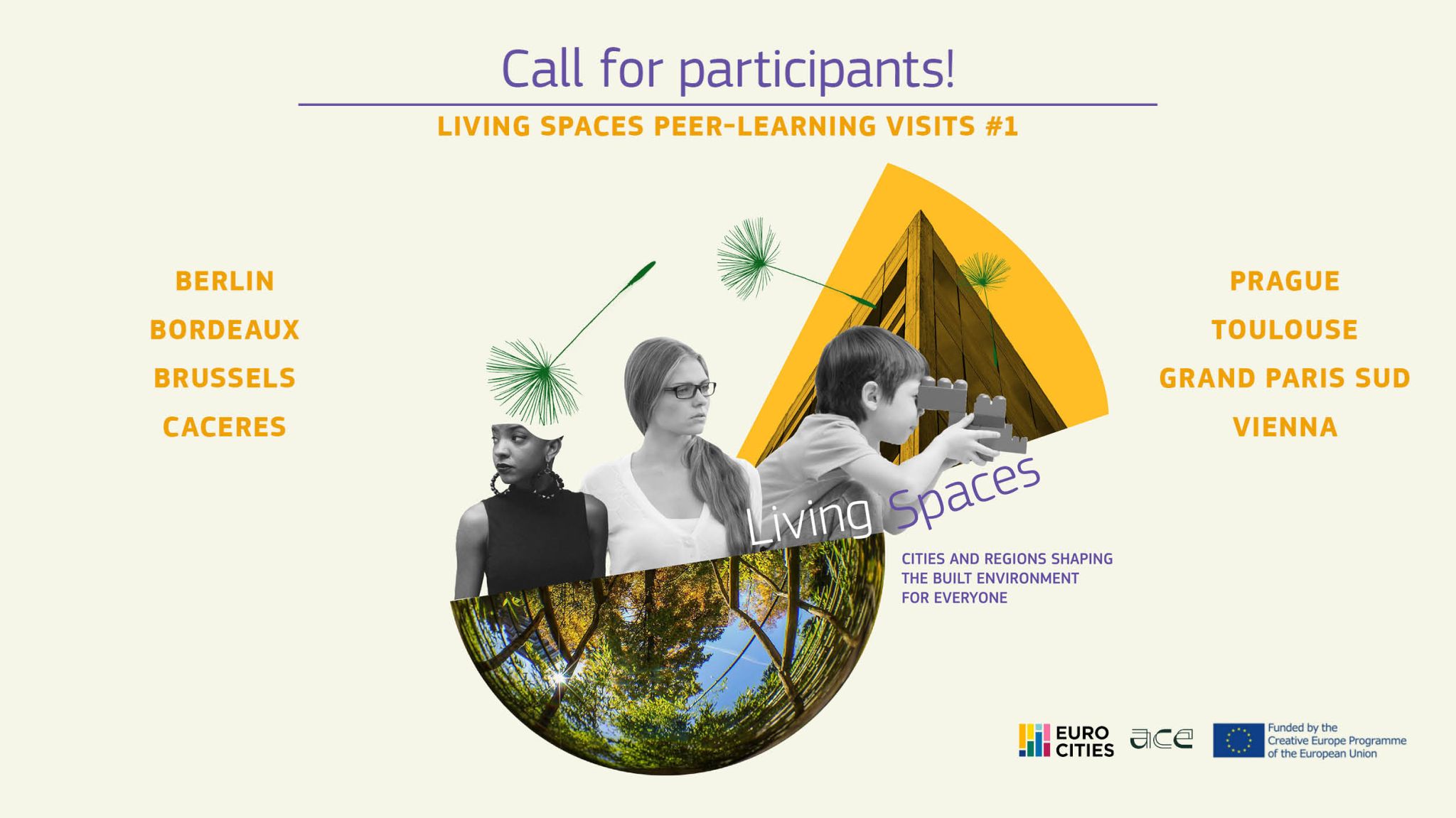
First call for participants for Living Spaces peer learning visits on architecture and the built environment
2024 will mark the beginning of the Living Spaces peer-learning visits organised by Eurocities and the Architects' Council of Europe (ACE-CAE).
Funded by the Creative Europe programme of the European Union, Living Spaces - Cities and regions shaping the built environment for everyone (Living Spaces) is implemented by Eurocities and the Architects’ Council of Europe.
12 European cities and regions will host peer-learning visits in 2024. If you are part of the administration of a city or region in the EU or a professional working on architecture and urban planning, this is your chance to exchange knowledge, share experiences, and learn from your peers and from experts on how to plan and implement high-quality architectural policies and projects.
All you need to do is fill out the form with your information and motivation to participate.
The focus of the peer-learning visits will be on architecture and the built environment, and they will address various cross-cutting topics such as climate change, social equality, sustainable development, housing, public and open spaces, mobility etc.
20 participants for each visit will be selected through 2 rounds of calls for participants.
Learn more about the visits and apply here.
- Francesca Pozzebon
- 08 January 2024
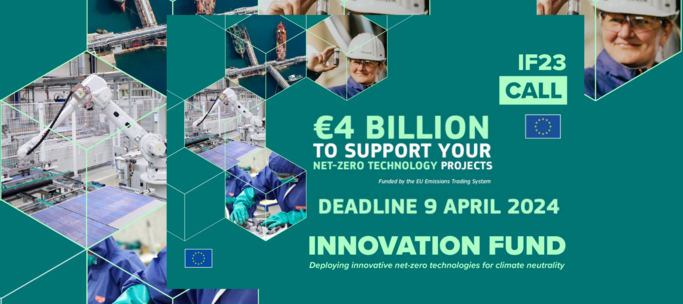
Innovation Fund calls to drive net-zero technologies open until April 2024
With a budget of €4 billion, the Commission has reaffirmed its commitment to supporting innovative projects that contribute to the EU’s green transition goals.
The Innovation Fund calls, funded by revenues from the EU Emissions Trading System (EU ETS), are open to small, medium and large-scale projects and cover sectors including decarbonisation, cleantech manufacturing, and maritime and energy-intensive industries.
The Innovation Fund calls may offer opportunities for Hydrogen Valleys type of projects and other projects with large hydrogen production for single applications (e.g. industry).
The applications are open until 9 April 2024, 17:00 (CET).
Call structure and topics:
Project promoters are invited to apply under five distinct topics, each with specific budget and capital expenditure (CAPEX) requirements. These include:
- General Decarbonisation (Large-scale): €1.7 billion available for projects with CAPEX above €100 million.
- General Decarbonisation (Medium-scale): €500 million available for projects with CAPEX between €20 million and €100 million.
- General Decarbonisation (Small-scale): €200 million available for projects with CAPEX between €2.5 million and €20 million.
- Cleantech Manufacturing: €1.4 billion available for projects with CAPEX above €2.5 million, focusing on manufacturing components for renewable energy, energy storage, heat pumps, and hydrogen production.
- Pilot: €200 million available for projects with CAPEX above €2.5 million, focusing on deep decarbonisation.
Take a look at the Info Day session, where stakeholders were informed about the new features of this call. The presentations are available here.
More information:
- Admin Admin
- 08/01/2024
-
Working Group
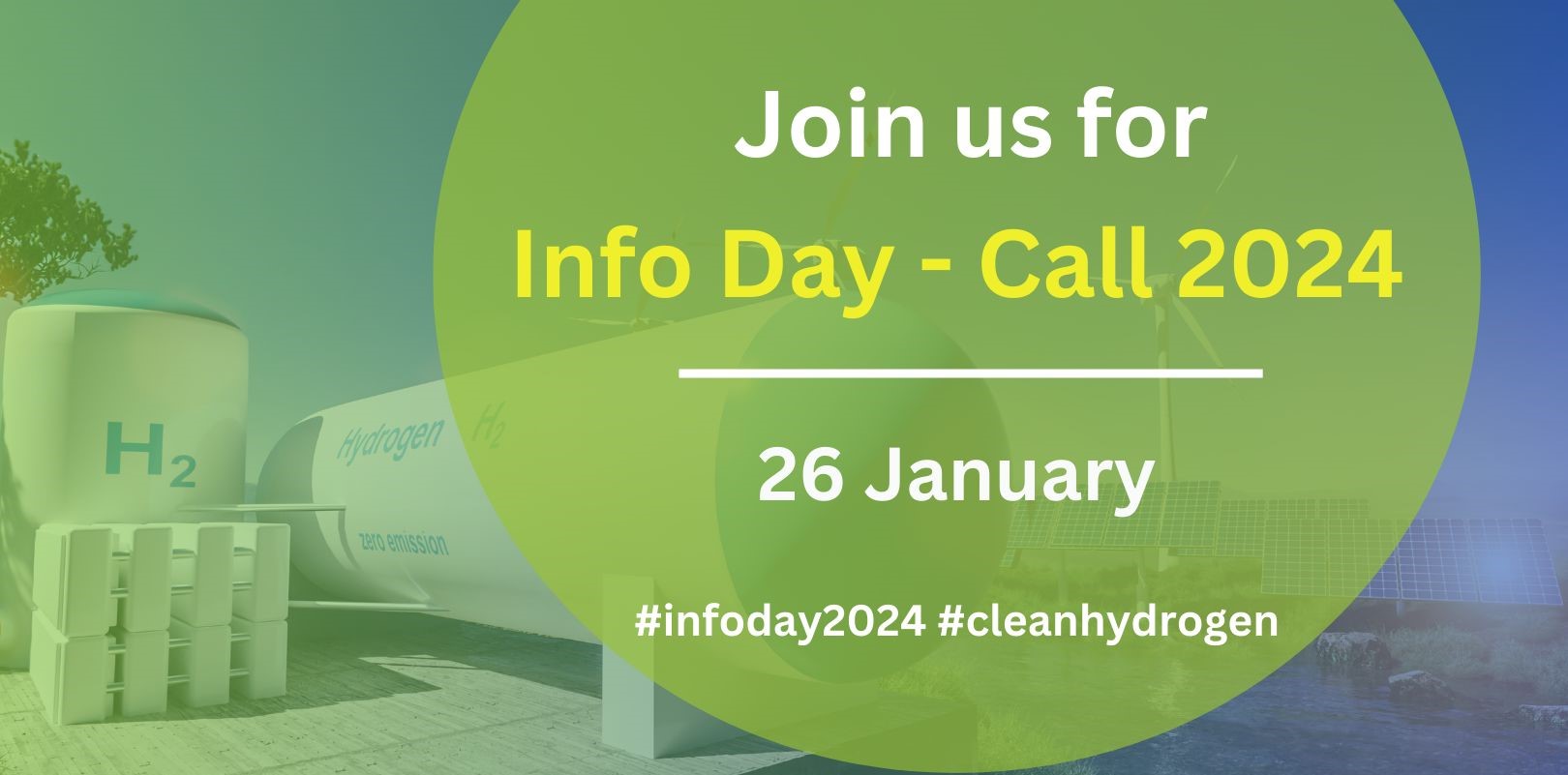
Info Day on Clean Hydrogen Partnership Calls 2024
The calls for proposals from the Clean Hydrogen Partnership are set to launch this January. Covering diverse topics such as hydrogen valleys, renewable hydrogen production, storage and distribution, end-uses, such as transport applications, these calls present an unique opportunity to develop hydrogen technologies on the ground.
The Clean Hydrogen Partnership is organising an info day to provide a comprehensive insight into the 2024 calls. The event will take place on Friday 26 January from 09:15 to 18:00 (CET). It will be both in-person in Brussels and online.
For a detailed agenda, please visit the dedicated website.
The recording is available here. The event slides are available on this page.
- 26/01/2024 - 09:15 - 26/01/2024 - 18:00
- This meeting will take place online
-
TBD
1000 Brussels
Belgium - Silvia Ghiretti
-
Working Group
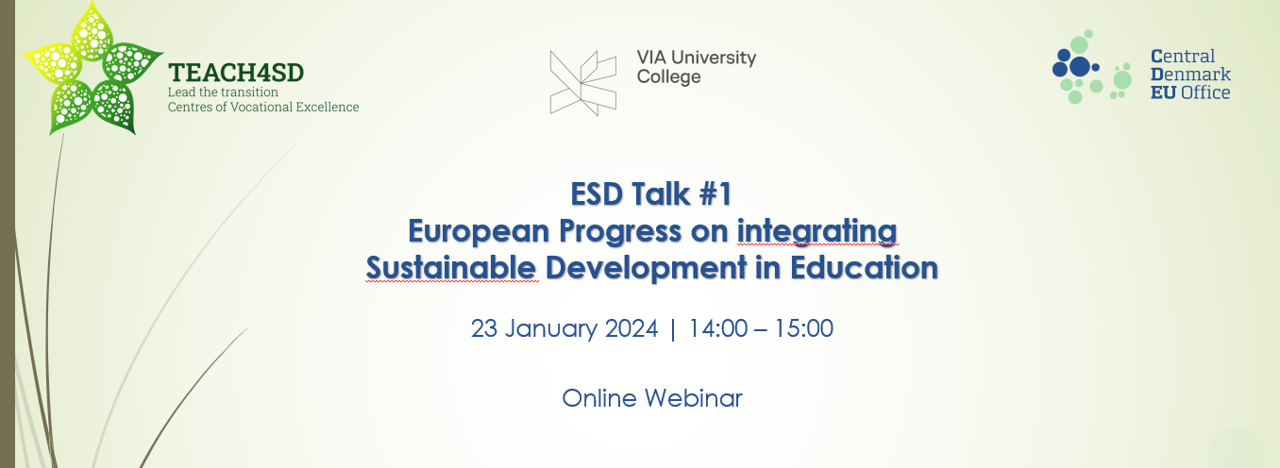
European Progress on integrating Sustainable Development in Education
A new series of ESD Talks, focusing on the European progress on integrating green skills and competencies in education has launched. The webinar is hosted by the Erasmus+ project TEACH4SD, which aims to develop and support education in sustainable development across European Member States and beyond. The webinar is open to everyone. In the first edition Vera Leuner, Policy Officer in DG Employment, Social Affairs & Inclusion will be the main speaker. She will share the European Commission’s initiatives on skills for the green transition. This webinar marks the first ESD Talk out of four annual sessions during the four-year project. The current European state of the art on green skills in education with our fellow EU partners will bea addressed as well.
Register to the webinar here.
Agenda:
14.00-14.15: Welcome & introduction by Jeppe K. Christensen, Director of Research Center of Innovation and Entrepreneurship, VIA University College
14.15-14.35: Presentation on the European skills for the green transition, Vera Leuner, Policy Officer, Vocational Education and Training unit, DG EMPL
14.35-14.55: Q&A moderated by Jeppe K. Christensen
14.55-15.00: Wrap up, Jeppe K. Christensen
More information on the project is available on the official website here. In the future TEACH4SD will release a quarterly newsletter providing insights to the development of the project. Follow the project on LinkedIn here for updates on the project and the upcoming newsletter.
- 23/01/2024 - 14:00 - 23/01/2024 - 15:00
- This meeting will take place online
- Central Denmark EU office
-
Member
-
Working Group
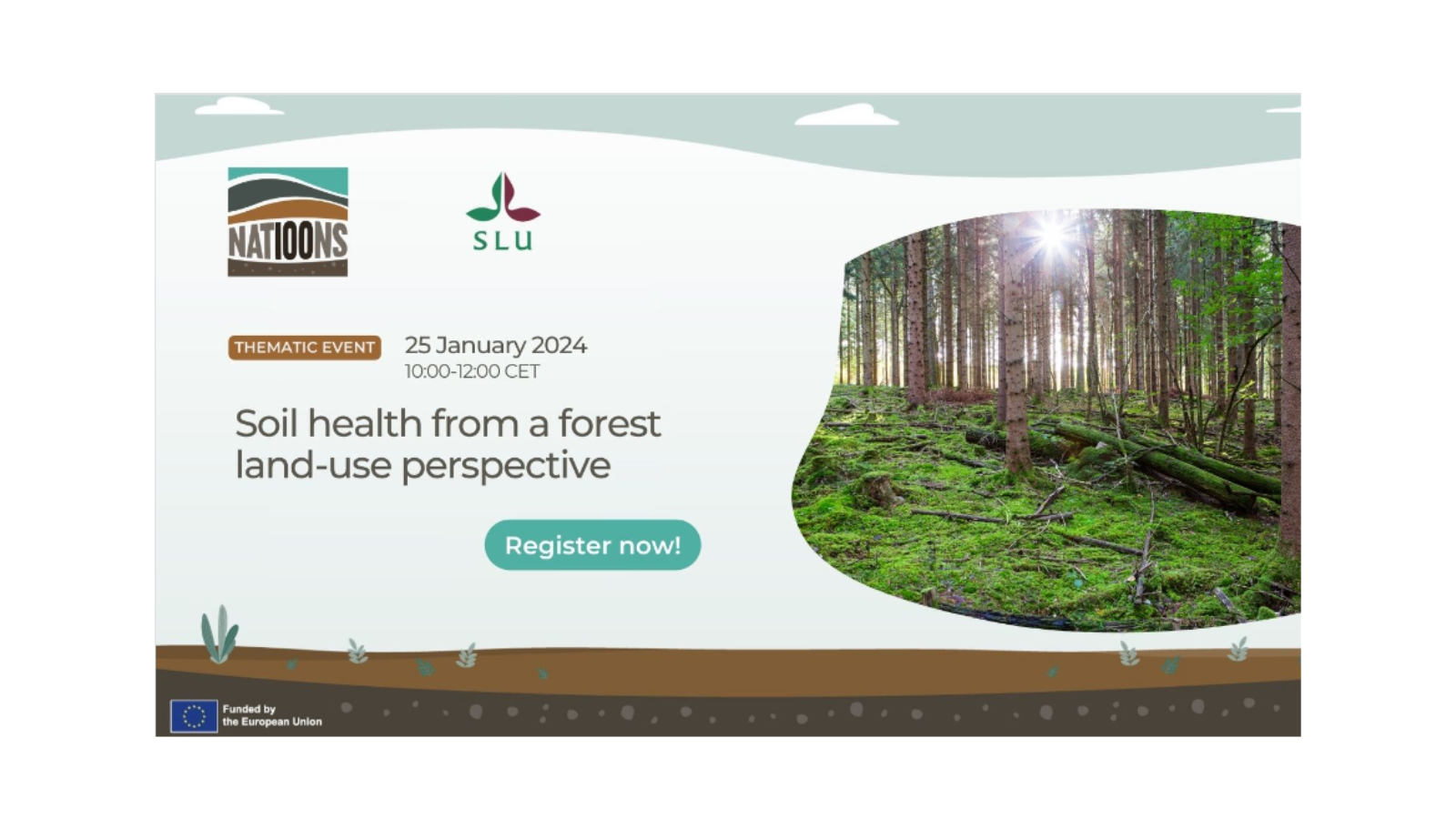
Soil health from a forest land-use perspective
Soil health from a forest land-use perspective
Considering the role of soils in mitigating climate change, the European Union has commissioned new soil directives with a new soil deal for Europe where 100 living labs focusing on soil health and different land uses will be established. Forestry is a vital economic activity for many nations and is also highly reliant on soils, which is a vital component for regulating ecosystem processes. As part of the soil awareness campaign, this event will focus on understanding the interactions between forestry and soil properties directly and indirectly. We would like to initiate discussions about how the concepts of soil health and living labs could be understood and applied within forestry and across forested landscapes.
This webinar is co-organised by SLU, the Swedish University of Agricultural Sciences, one of the ERRIN's member Lärosäten Syd - Universities in South-Sweden and Nati00ns. The webinar will discuss how impacts of forestry on soils are intensified across geographical locations where soils become more susceptible to soil erosion in semi-arid and dry areas. It will also look into how to address the monitoring of soil indicators considering rotation periods, from short 20-23 years to long 50-70 years, and consider differences in forest management practices, like mixed vegetation versus monocultures.
Practical information
This webinar is free, but registration via this link is mandatory. This webinar is part of a compelling series of six European-wide events organised by Nati00ns, which are conducted entirely online, featuring impactful introductions to specific topics by esteemed keynote speakers and real-world practitioners.
The EU Mission: A Soil Deal for Europe is one of the priority topics of ERRIN's Bioeconomy Working Group. You can read more about the work conducted on this dedicated webpage.
- 25/01/2024 - 10:00 - 25/01/2024 - 12:00
- This meeting will take place online
- Astrid Hannes
-
Working Group
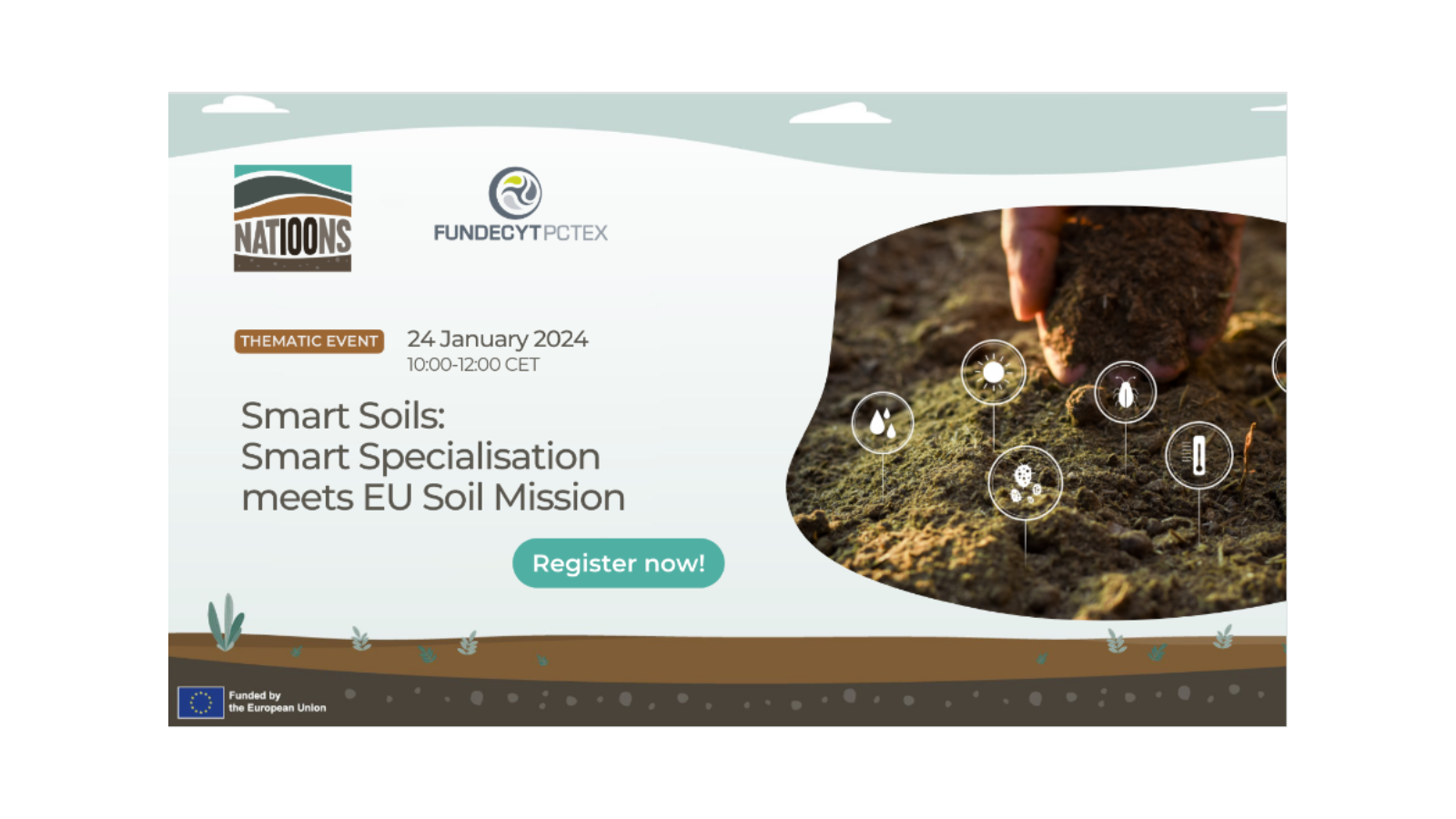
Smart Soils: Smart Specialisation meets EU Soil Mission
Smart Soils: Smart Specialisation meets EU Soil Mission
A Europe-wide discussion in a virtual session about the relationship, at the regional level, between the Smart Specialization Research and Innovation Strategies (RIS3) and the Soil Mission (SM) will be the focus of this Nati00ns thematic events.
It will integrate policymakers, experts, technicians and citizens involved in regional policy-making and implementation of innovation programs with the following challenges: identify examples of connections that already exist/are foreseen/intuited between RIS3 and the SM objectives; discover the possibilities for the implementation of the strategies to solve soil troubles and conclude on policy good practices to guide the processes of orienting RIS3 towards the mission and vice versa.
Soil is the foundation of our food systems. It provides clean water and habitats for biodiversity while contributing to climate resilience. It supports our cultural heritage and landscapes and is the basis of our economy and prosperity. RIS3 are demonstrating from 2013 their utility at local level to foster transformative changes through innovation.
To further facilitate collaboration, NATI00NS will unveil matchmaking opportunities through our dedicated Matchmaking Platform during these events. This initiative aims to connect like-minded individuals, organizations, and experts, fostering partnerships that contribute to the collective mission of nurturing healthy soils across Europe.
Participation is free, but registration via this link is mandatory.
More information
This webinar is part of a series of six European-wide events organised by Nati00ns, and will be conducted entirely online, featuring impactful introductions to specific topics by esteemed keynote speakers and real-world practitioners. You can find the calendar of upcoming events here.
The EU Mission: A Soil Deal for Europe is one of the priority topics of ERRIN's Bioeconomy Working Group. You can read more about the work conducted on this dedicated webpage.
- 24/01/2024 - 10:00 - 24/01/2024 - 12:00
- This meeting will take place online
- Astrid Hannes
-
Working Group
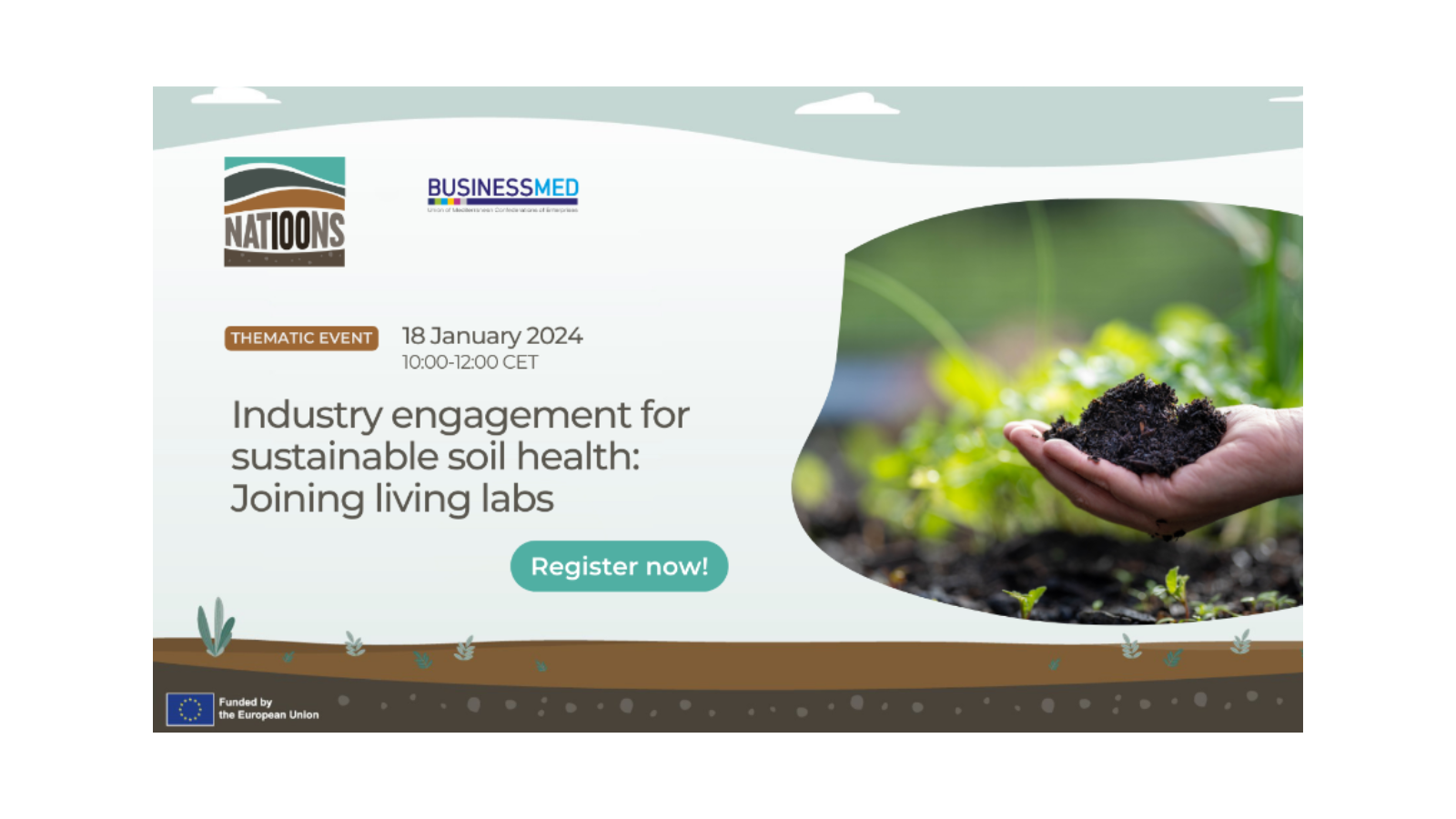
Industry engagement for sustainable soil health: Joining living labs
Living labs and industry engagement for sustainable soil health
Living Labs are dynamic innovation ecosystems that facilitate collaborative, user-driven solutions in real-life settings. The private sector's active engagement unlocks benefits like access to a unique testbed, co-creation opportunities, and accelerated innovation cycles.
This webinar is co-organised by Nati00ns and Business MED and emphasizes the essential role of private sector participation in Living Labs, covering resource allocation, market validation, and user-centric innovation. Private sector involvement is paramount for the success of these ecosystems, providing vital resources, expertise, and investment. Attendees will gain valuable insights into how this collaboration leads to accelerated growth, enhanced market competitiveness, and the development of innovative solutions that meet real-world needs.
Practical information
This webinar is free, but registration via this link is mandatory. This webinar is part of a compelling series of six European-wide events organised by Nati00ns, which are conducted entirely online, featuring impactful introductions to specific topics by esteemed keynote speakers and real-world practitioners.
The EU Mission: A Soil Deal for Europe is one of the priority topics of ERRIN's Bioeconomy Working Group. You can read more about the work conducted on this dedicated webpage.
- 18/01/2024 - 10:00 - 18/01/2024 - 12:00
- Astrid Hannes
-
Working Group
Partner search for Erasmus+ project: Circular Economy in Construction Education (CE2)
- Central Denmark EU office
- 05/01/2024
-
Funding Programme
-
Deadline for Expression of Interest22 January 2024
-
NameMikkel Ebbesen VintherOrganisation NameProject Lead – Energibyen Skive – Circular Economy Beyond Waste
- Get in Touch
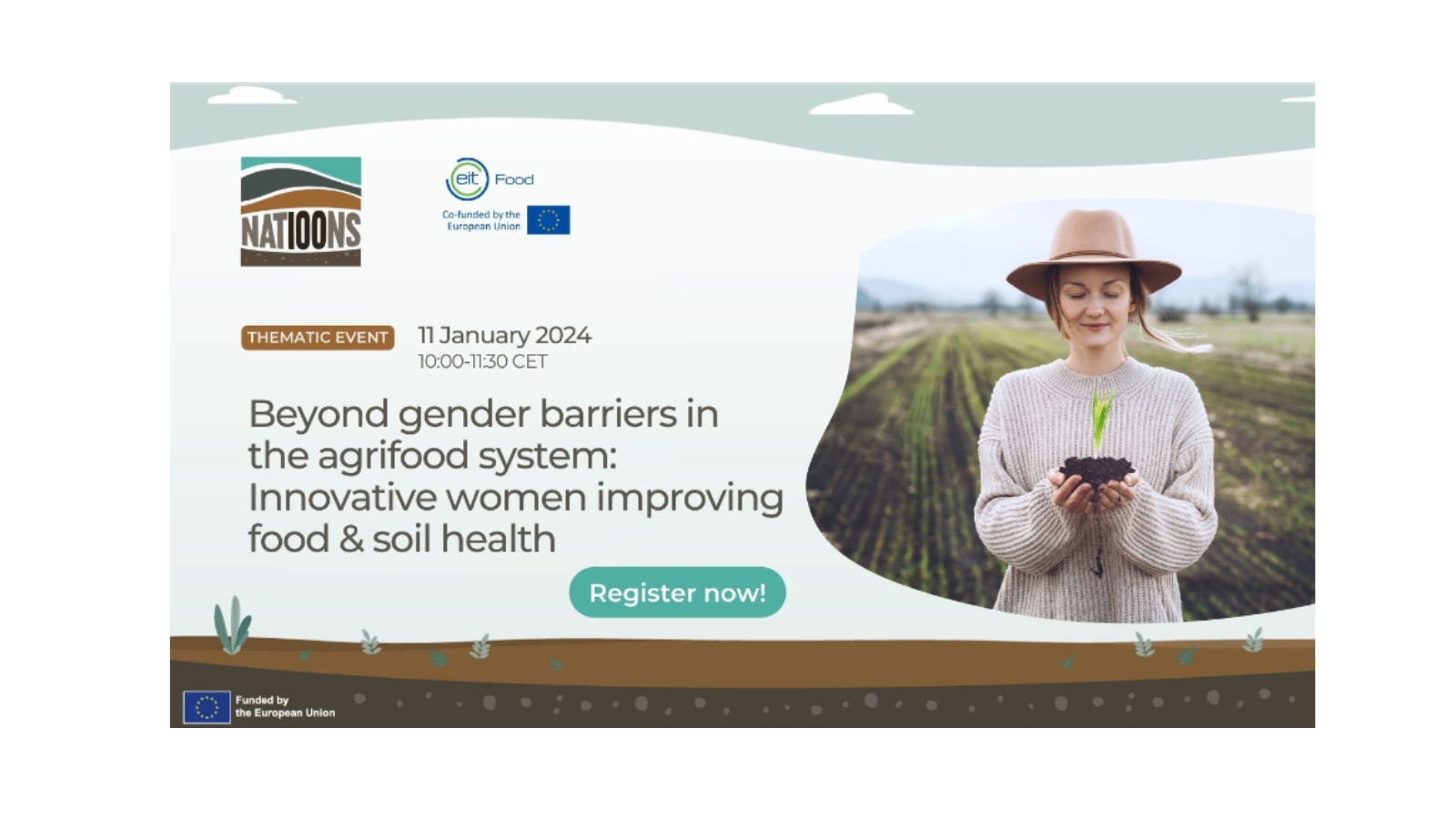
Beyond gender barriers in the agrifood system: Innovative women improving food & soil health
Beyond gender barriers in the agrifood system: Innovative women improving food & soil health
We are facing a number of social and environmental challenges, such as gender equality and climate change. For years we have thought those challenges were playing apart, but the truth is they work hand-to-hand every day. For instance, a clear example is set in agrifood system, where there are countless women experts in the agrifood sector who have challenged gender gaps and have developed the most innovative solutions to improve food and soil health, among others.
The aim of this event is to meet and interact with women entrepreneurs and experts in the agrifood sector whose work contributes to the mission of transitioning to healthy soils by 2030. Throughout the event, topics such as regenerative agriculture, biodiversity, soil health and other hot topics will be discussed.
More information
You can find the event agenda here. Participation is free, but registration via this link is mandatory.
The EU Mission A Soil Deal for Europe is one of the priority topics of ERRIN's Bioeconomy Working Group. You can read more about the work conducted on this dedicated webpage.
- 11/01/2024 - 10:00 - 11/01/2024 - 11:00
- This meeting will take place online
- Astrid Hannes
-
Working Group
